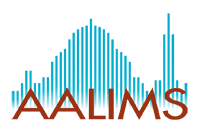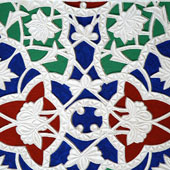Message from the President
Founded in April 2010, AALIMS reached a milestone at its third anniversary. As a sign of becoming an established organization, we have experienced our first “change of the guard.”
Economic and Political Institutions of Islam: Past and Present
Program: View PDF
Presentations: View presenters and their papers
All sessions are free and open to the public.
Presentations by faculty and advanced graduate students will explore the workings and transformations of diverse institutions that have been identified with Islam either through doctrinal interpretation or the practices of Muslims. The workshop’s purpose is to foster conversations between scholars studying such institutions from various perspectives, in various contexts, and in both the past and the present. The focus will be on institutions that have affected political and economic performance.
The workshop is organized jointly by the the Association for Analytic Learning about Islam and Muslim Societies (AALIMS) and three Princeton University units: the Mamdouha S. Bobst Center for Peace and Justice, the Workshop on Arab Political Development (an affiliate of the Princeton Institute for International and Regional Studies and the Niehaus Center for Globalization and Governance. It also has the following co-sponsors: the Program in Near Eastern Studies, the Institute for the Transregional Study of the Contemporary Middle East, North Africa and Central Asia and the Department of Near Eastern Studies. The event is the first focused workshop co-organized by AALIMS. The first AALIMS conference took place at Duke University in 2010, the second at Harvard University in 2011, and the third at Stanford University in 2012. The fourth will be held at Rice University in April 2013.
Fall 2013 Workshop Organizing Committee
Eric Chaney (Harvard University)
Bernard Haykel (Princeton University)
Amaney Jamal (Princeton University), chair
Timur Kuran (Duke University)
Helen Milner (Princeton University)



.png)

Presentations
(Partial List)
Masooda Bano (University of Oxford)
Christine Binzel (Heidelberg University) and Jean-Paul Carvalho (University of California, Irvine)
Education, Social Mobility and Religious Movements: A Theory of the Islamic Revival in Egypt
Lisa Blaydes (Stanford University)
Metin Coşgel (University of Connecticut, Storrs) and Thomas Miceli (University of Connecticut, Storrs)
Amaney Jamal (Princeton University), Tarek Masoud (Harvard University) and Elizabeth Nugent (Princeton University)
Jane Menon (University of Michigan)
Women’s Activism in Islamist Organizations
Erik Meyersson (Stockholm School of Economics)
Counting Islamists: Regression Discontinuity Meets Election Forensics
Alan Mikhail (Yale University)
Engineering Institutions: Irrigation and the Persistence of Early Modern Expertise in Ottoman Egypt
Christopher Paik (New York University-Abu Dhabi)
A Western Reversal Since the Neolithic? The Long-Run Impact of Early Agriculture
Thomas Pepinsky (Cornell University)
Colonial Migration and the Origins of Governance: Theory and Evidence from Java
Stuart Borsch (Assumption College)
Coercion and Catastrophe – The Black Death in Comparative Perspective
Carolyn Warner (Arizona State University)
Generosity Dynamics of Catholicism and Islam: The Role of Institutions and Beliefs


